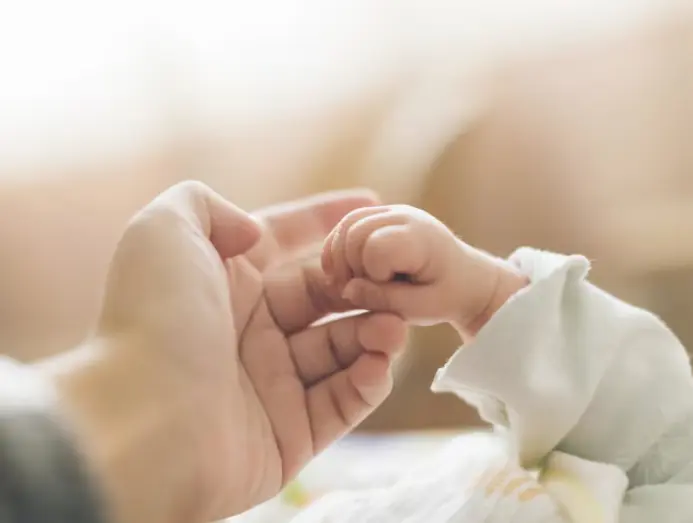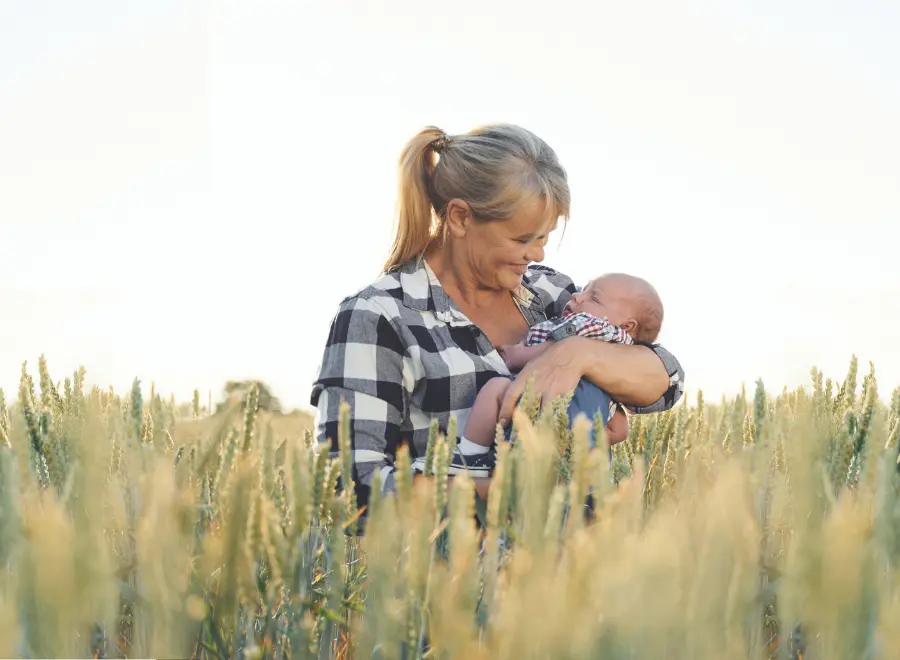SensIQ was created to support women facing brain and mood challenges in midlife, but many also wonder about fertility. Questions about the biological clock, the number of eggs, and the best age to conceive are common.
This article reviews what medical experts, including Dr. Luke Barr, say about fertility, age, and pregnancy outcomes. It combines scientific data with practical advice to help women make informed decisions.
Key Takeaways
- Fertility begins to decline in the early 30s and drops more quickly after age 35, making conception harder and raising the risk of miscarriage.
- Women over 35 can still have a healthy pregnancy, but they face higher risks of gestational diabetes, high blood pressure, and chromosomal abnormalities.
- By age 40, natural conception chances fall below 10% per cycle, though IVF and donor eggs can improve success rates.
- Doctors often recommend more frequent monitoring after age 35 and may suggest induction around 39 weeks for women in their 40s to reduce stillbirth risk.
- Men also experience fertility changes with age, as sperm quality declines after 40, which can contribute to miscarriage and birth defects.
Quick Answer on Age and Fertility

What age is too old to have a baby for a woman
Most women are born with all the eggs they will ever have. Fertility peaks in the 20s and early 30s. By age 35, egg quality and quantity decline faster. While some women conceive naturally later, the chance becomes much lower after age 40.
What age is too old to have a baby for a man
Men do not have a fixed biological clock, but sperm quality decreases with age. After 40, there is a higher risk of DNA damage in sperm. This can raise the chances of birth defects or developmental issues. Still, men often father children into their 50s or 60s.
The best age to have a baby for a woman
The best biological age to conceive is in the 20s to early 30s, when both egg quality and uterine health are strongest. After 35, risks such as chromosomal abnormalities and a risk of miscarriage increase.
The best age to have a baby for a man
For men, the best age is before 40, when sperm quality is higher. After that, risks increase, though the decline is slower than in women.
At what age should you no longer have a baby?
There is no strict cutoff, but after 4, natural conception is rare. Pregnancies at this age carry a higher risk of complications, including premature birth and gestational diabetes. Most doctors recommend assisted options like IVF with donor eggs for women in their mid-40s.
Fertility Decline and Natural Conception
How old is too old to have a baby naturally
Conceiving naturally after 40 is possible but difficult. By this age, egg quality is often poor, and the number of eggs is low. Most women stop releasing viable eggs by their mid-40s.
Fertility decline by age at a glance
Figures are approximate ranges from clinical sources; individual chances vary by health, cycle regularity, and evaluation results.
Is 37 or 38 too old to have a baby?
At 37 or 38, many women still conceive, but fertility is declining. This age comes with a higher risk of chromosomal abnormalities and complications like high blood pressure or diabetes during pregnancy. Regular monitoring is essential.
Is a 40-year-old too old to have a baby?
At 40, natural conception is less likely but still possible. IVF success is about 20% at this age. Women who get pregnant at 40 face more risks of pregnancy, but many still deliver a healthy baby with regular prenatal care.
How a male’s age affects pregnancy chances
Male age matters too. Older men are at higher risk of miscarriage and conditions such as autism or schizophrenia. While men can father children later, advanced paternal age does affect outcomes.
Health and Safety Risks After 35
How old is too old to safely have a baby
Safety depends on health, not just age. Women over 35 can still have a healthy pregnancy, but they need closer monitoring. After 40, the risks rise further, requiring specialist care.
Disadvantages of having a baby later in life
Older mothers face challenges:
- Lower fertility
- Increased risk of miscarriage
- More chances of premature birth
- Higher need for fertility treatments
Common risks: miscarriage, preeclampsia, gestational diabetes
The most frequent risks are:
- The risk of miscarriage rises with age
- Gestational diabetes becomes more common after 35
- High blood pressure or diabetes during pregnancy increases complications
- Chromosomal abnormalities, such as Down syndrome, are more likely
Screening and monitoring for older mothers
Doctors use advanced screening to reduce risks. This includes ultrasounds, blood tests, and genetic testing. With regular prenatal care, many risks can be managed, and outcomes can improve.
Chances of Pregnancy by Age
Natural conception odds and miscarriage risk
In the early 30s, natural conception is still likely, though miscarriage risk is about 15%. At age 35, the risk climbs to 20%. By age 40, miscarriage rates reach one-third of pregnancies.
IVF and assisted reproduction success rates
IVF with donor eggs can raise success to 50–60%, even in women over 40. Outcomes vary by clinic, ovarian reserve, embryo quality, and protocol.
What age is too late for babies?
While there are cases of women giving birth at 50 with IVF, for most women, natural conception ends by 45. After this point, treatment options are usually required.
Oldest Ages for Pregnancy
The oldest age woman can have a baby
Natural conception past 45 is extremely rare. Most pregnancies at this age are achieved through IVF, often with donor eggs.
Is 42 or 47 too old to have a baby?
At 42, pregnancy is possible but carries significant risks. At 47, natural pregnancy is almost impossible, and donor eggs are usually required. At this age, women face a very high risk of premature birth or complications.
Reported cases of late pregnancies
Some women have given birth to twin babies at 50 with IVF. While rare, these cases highlight what technology can achieve. Still, most doctors advise caution because of health risks.
When and How to Seek Fertility Help
When to see a doctor: timelines by age
- Under 35: seek help after 12 months of trying
- Age 35–39: see a doctor after 6 months
- Age 40+: seek help immediately
What a fertility evaluation includes
Doctors may check:
- Hormone levels
- Ovarian reserve (measuring the number of eggs)
- Menstrual cycle health
- Partner’s sperm quality
Success of treatments after 35, 40, and 45
- After 35: IVF or medication often helps
- At 40: donor eggs improve odds significantly
- At 45: IVF with donor eggs is usually the only option
Options for Delaying Pregnancy

Egg freezing and embryo banking
Egg freezing is most effective before 35, while egg quality is higher. Embryo banking is another choice for couples planning.
Costs, limits, and success factors
Egg freezing can cost thousands and requires hormone treatment. Success depends on the woman’s age at the time of freezing and the health of the eggs.
Emotional and lifestyle considerations
Delaying pregnancy offers career and lifestyle flexibility, but it can cause emotional stress if conception is harder later. Couples should weigh both benefits and risks.
Supporting a Healthy Pregnancy Later in Life
Preconception steps and prenatal care
Healthy habits make a difference:
- Balanced diet and exercise
- Stopping smoking and alcohol
- Managing existing conditions
- Early and regular prenatal care
Delivery planning and medical support
Women over 35 are more likely to need a C-section. Planning delivery in a hospital with high-level care is safer.
Is it selfish to have a baby later in life?
This is a personal question. Some worry about being older parents, but many provide stable, loving homes. What matters most is preparation and health, not judgment.
Is 40 too late to start trying?
No, many women conceive at 40, but risks are higher, and medical support is recommended.
Can I have a baby at 45?
Yes, but usually with IVF and donor eggs. Natural conception at this age is extremely rare.
What’s the success rate of IVF after 40?
IVF success is about 20% at 40, dropping to under 5% at 43. Donor eggs increase the success rate.
Final Note
Fertility changes with age, but many women still achieve a healthy pregnancy later in life. By understanding the risks of pregnancy, considering fertility treatments, and relying on regular prenatal care, women can make informed decisions.
Experts like Dr. Luke Barr stress the importance of clear information, safe planning, and medical support. SensIQ continues to provide evidence-based resources to help women navigate midlife with confidence.

